Hillary Clinton’s views evolved on same-sex marriage within the first 72 hours of her presidential run, as her campaign said Wednesday that the former secretary of state now backs marriage equality as a US constitutional right.
The about-face, dropped as Clinton was preparing the second of two progressive-leaning appearances in Iowa, represents a significant – if not completely unexpected – shift from her previous statements that same-sex marriage should be legislated state-by-state rather than on the federal level.
LGBT activists said the move, while potentially motivated by politics and conveniently timed to Clinton’s presidential run and a looming US supreme court case, represented something of a milestone.
“Hillary Clinton supports marriage equality and hopes the Supreme Court will come down on the side of same-sex couples being guaranteed that constitutional right,” Clinton spokeswoman Adrienne Elrod said in a statement confirmed by the Guardian.
The supreme court is scheduled to hear arguments on the constitutionality of state bans of same-sex marriages on 28 April, with a decision expected in June that could effectively make marriage equality legal nationwide.
Last June, Clinton told NPR that she thought marriage was a state issue.
“[F]or me, marriage has always been a matter left to the states,” she said in the interview with public radio’s Terry Gross. “I fully endorse the efforts by activists to work state by state.”
Since then, Clinton had repeatedly dodged press inquiries on the topic.
Advertisement
The former secretary of state did not formally say whether she supported same-sex marriage at all until March 2013, when she appeared in an online video released by the LGBT advocacy group Human Rights Campaign (HRC). Previously, Clinton had only said publicly that she supported civil unions.
The former first lady did advocate for LGBT rights while at the State Department: “Gay rights are human rights,” she said during a 2011 speech in Geneva.
HRC president Chad Griffin called Wednesday’s more direct federal coming-out party a “strong statement”.
Gregory Angelo, president of Log Cabin Republicans, a gay advocacy group, was less charitable.
“It was good to see that Clinton, after much heel dragging, has finally come into line,” he told the Guardian.
Indeed, Clinton has a complicated history on gay rights.
While first lady, former president Bill Clinton signed the Defense of Marriage Act (Doma), which prohibited the federal government from recognizing same-sex marriages. Much of that law was struck down by the supreme court in the 2013 case of United States v Windsor.
This year’s new landmark case before the high court, Obergefell v Hodges, represent a kind of full-circle rotation by the judiciary branch after Clinton long-derided 1996 signature of Doma, which he admitted to regretting just before the Winsdor case was argued.
Bill Clinton also approved the controversial “don’t ask, don’t tell”, which prevented openly gay men and women from serving in the US military.
Former Maryland governor Martin O’Malley – perhaps Hillary Clinton’s most aggressive competitor for the Democratic nomination in 2016, though he has not declared – has already said that same-sex marriage is a human right and should not be left to the states.
He released a video on Wednesday, in which his narration says, in a not-so-subtle dig at the competition, that “history celebrates profiles in courage, not profiles in convenience”.
O’Malley, who successfully pushed for the passage of same-sex marriage in Maryland, has also evolved on the issue and previously only supported civil unions himself.
Beleaguered national carrier Thai Airways International Plc (THAI) is expected to turn the corner by next year followingthe implementation of a business rehabilitation plan. The plan will start to improve…
Please credit and share this article with others using this link:http://www.bangkokpost.com/business/tourism/530199/thai-rehab-plan-set-to-stem-losses. View our policies at http://goo.gl/9HgTd and http://goo.gl/ou6Ip. © Post Publishing PCL. All rights reserved.
The plan, approved by the State Enterprises Policy Commission, also known as the superboard, includes divesting ageing aeroplanes and non-core assets, scrapping unprofitable routes, lowering the size of…
Please credit and share this article with others using this link:http://www.bangkokpost.com/business/tourism/530199/thai-rehab-plan-set-to-stem-losses. View our policies at http://goo.gl/9HgTd and http://goo.gl/ou6Ip. © Post Publishing PCL. All rights reserved.
Washington: Indo-US relationship is not merely government-to-government but is widely endorsed by the people and it is stronger than ever, Finance Minister Arun Jaitley has said.
Jaitley made the remarks at a dinner reception hosted in his honour at the Indian Embassy which was attended by many senior Obama Administration officials and senior ministers.
It is rare for so many administration bigwigs, including three cabinet rank ministers, to attend a reception for a visiting Indian minister.
“This relationship is not merely a government-to- government relationship, it is a relationship widely endorsed by the people,” Jaitley, who is here to attend the annual spring meeting of the International Monetary Fund and the World Bank, said.
In his brief remarks, Jaitley acknowledged that the presence of top officials was a reflection of the new era of India-US ties.
“Prime Minister Modi was here in the US last September. President Obama became the first President to visit India twice during his presidency. The kind of reception he received at our Republic Day where he was the chief guest is only an endorsement of the fact that…It is a relationship widely endorsed by the people,” he said.
India, Jaitley said, is going through a very transformational change.
“It’s a change where we can see the role ahead of us,” he said.
The role is to strengthen the economy, get rid of several legacies of the past so that the government is able to serve its people the most it can, Jaitley said.
The India-US relationship is stronger than ever, Jaitley said.
The Indo-US partnership now extends to various fields.
Jaitley said, it is not merely a partnership in terms of business activity, or creation of smart cities, or skill development, it is a partnership in strategic areas that impacts the lives of the people of the two nations.
The reception was attended by top administration functionaries like Treasury Secretary Jack Lew, Transportation Secretary Anthony Fox and US Trade Representative Mike Froman.
Several powerful American lawmakers, including Chairman of the House Foreign Affairs Committee Congressmen Ed Royce, Chairman of the House Committee on Rules Pete Sessions and newly married Congresswoman Tulsi Gabbard, attended the reception held here.
The US India Business Council Chairman and Master Card CEO Ajay Banga and Honeywell CEO Dave Cote were among the top American corporate leaders to attend the reception.
PTI
The Chhattisgarh CID has registered a murder case in the killing of a minor tribal girl in an alleged fake encounter in 2011, based on the findings of a judicial inquiry into the incident.
“An offence under sections 302 (murder) and 34 (acts done by several persons in furtherance of common intention) of IPC into the case of killing of Meena Khalko has been lodged and a team has been formed to investigate the incident with a fresh view,” Additional Director General of Police (CID) Rajeev Shrivastav told PTI.
The action has been taken following recommendations of a judicial panel constituted to probe the incident that took place in Balrampur district’s Chando police station limits in 2011.
“Total 25 police personnel, including an inspector, were allegedly involved in the incident and charges will be framed against them after the inquiry,” Shrivastav said.
A team led by Assistant Inspector General, CID, Neha Champawat has been sent to Balrampur for further investigation into the case, he said.
Meena, 16, was killed in an alleged encounter by a team of policemen from Chando police station near Karcha village in Balrampur (then Surguja district) on July 6, 2011.
Police had claimed that Meena was a Naxalite and had been killed in retaliation after police party was attacked.
However, Meena’s family members and residents of Nawadih village had denied that any face-off took place that day and had accused the police of staging a fake encounter.
In the wake of allegations and protest by human rights activists, the government had constituted a judicial commission to probe the incident.
The report of the single-member judicial panel, headed by retired District and Sessions Judge Anita Jha, on the incident was tabled in the state cabinet early this month.
The judicial commission in its report has recommended the state government to re-investigate the incident and take necessary action. It has also pointed that police bullet had killed Khalko.
However, it has not clarified whether Meena was a Maoist or she was killed in an encounter.
Reserve Bank of India (RBI) Governor Raghuram Rajan has received a threat mail on his personal email ID.
Earlier this month, Rajan received a mail with the sender threatening to eliminate him. According to Mumbai Police sources, the email was sent from the ID [email protected].
According to reports, the mail said, “I have been given money by somebody to eliminate you. If you will pay me more than I have been paid, then we can decide on it.”
Mumbai Police has confirmed this development to Headlines Today saying, “Yes it is correct. It could be a mischief, but we are looking into it. The matter is given to the cyber cell officers. They are looking into it.”
The ID starts with Iraq-based terrorist outfit Islamic State of Iraq and Syria (ISIS). As soon as the email was received, RBI officials alerted the office of the joint commissioner of crime branch.
The Cyber Crime Investigation Cell (CCIC) of the police is looking into it.
Sources say, the CCIC has sent requests to Google in the US to provide them details about the email ID.
Former Prime Minister Surya Bahadur Thapa passed away late Wednesday night. He was 88.
Rashtriya Prajatantra Party’s joint spokesperson Kiran Giri confirmed Thapa’s death, according to the state-owned Nepal Television. Thapa had undergone a surgery at Medanta Hospital in New Delhi, India a few days ago. He was put on a ventilator after he complained of respiratory problems Wednesday evening.
Thapa served as Nepal’s Prime Minister for five times – a record that no other Nepali politician has ever made. In his political career spanning around five decades, he worked under three kings and was an outspoken advocate of the monarchy until the first people’s movement-1990.
However, even after restoration of multi-party democracy, Thapa became Prime Minister twice and also chaired some sessions of the Constituent Assembly (CA), which declared Nepal a republic in 2008, as the eldest lawmaker.
Thapa, who hails from Muga VDC of Dhankuta district, was one of the most influential politicians during the 30-year-long Panchayat system.
His son Sunil Bahadur Thapa is now serving as Minister of Commerce and Supplies.
Congress vice-president Rahul Gandhi on Thursday returned home from his 56-day unexplained sabbatical which had raised questions over his leadership of the party that is struggling to find its feet after a string of electoral defeats.
The 44-year-old leader arrived here at 11.15 a.m. on a Thai Airways plane from Bangkok, ending days of intense speculation over his return and amidst celebrations by party workers who burst crackers outside his residence.
Wearing a dark shirt and seated in the back seat of his vehicle, he arrived escorted by his security personnel and drove straight into the house without interacting with the waiting mediapersons.
The return of Mr. Gandhi comes ahead of the party’s planned farmers’ rally on the contentious Land Bill issue which he is likely to address.
The plane, which was scheduled to land at 10.35 a.m., was delayed by 40 minutes, sources said. Shortly later, Mr. Gandhi drove to his 12, Tughlaq Lane residence where his mother and Congress president Sonia Gandhi and sister Priyanka were waiting.
Mr. Gandhi had left quietly before the Budget session began on February 23 but it is still not known where he had spent the days.
The party had then said that he “requested Congress president Sonia Gandhi for some time to reflect on recent events and future course of the party“.
Ever since the announcement of his temporary break from political life, there has been speculation that he was unhappy with not getting a free hand to run the party, a contention which the party has officially denied.
Mr. Gandhi’s leave had come amid talk of an AICC session, where he was expected to be elevated as Congress president.
During his absence, several party leaders including former chief ministers Amarinder Singh and Sheila Dikshit came out in the open pitching for Sonia Gandhi to continue as president and raised questions over his leadership.
Congress leaders had announced that Mr. Gandhi would be back by April 19 as he would be addressing a farmers’ rally on land bill issue at the Ramlila maidan here on that day.
The rally is being held on the eve of the second phase of the Budget session of Parliament. Mr. Gandhi had skipped the first phase which saw the Congress taking on the government over the land bill issue.
Congress has been performing badly at the hustings, starting with the Lok Sabha elections last year. It was followed by a string of defeats in Assembly elections including in Delhi recently.
Sources also said that plans are underway to organise an interaction of Rahul Gandhi with a delegation of farmers on April 17, two days before he will address the Kisan-Khet Mazdoor rally of the party.
Party leaders on Thursday voiced confidence that Mr. Gandhi will provide leadership with dynamism and commitment and take pro-active measures.
“He is back and I have no doubt that he will be not only taking proactive measures but also with dynamism, with commitment provide leadership,” Congress leader Anand Sharma said, adding that farmers’ issue has been close to Rahul’s heart.
The BJP, meanwhile, took potshots at the Congress vice-president, saying he “ran away” as he had lost all confidence.
Asserting that a new “atmosphere of trust” has developed in India since he took over 10 months ago, Prime Minister Narendra Modi has vowed to “clean up” the mess left behind by the others.
“There is a new atmosphere of trust in our nation… We say ‘jan gana man adhinayak’ — that ‘Jan Man’ has changed,” Modi said addressing in Hindi an estimated over 10,000-strong Indian diaspora at Ricoh Coliseum in Toronto, early Thursday morning.
Modi is in Canada on the last leg of his three nation tour.
Thanking the Canadian people for the welcome they have given him, the PM said the honour wasn’t for Narendra Modi but for the 125 crore people of India.
It was a repeat of the Madison Square Garden atmosphere in North America as Modi spoke at length to an admiring audience in Toronto on Wednesday evening (Canadian time) during a community reception.
What made this event different was that for the first time for such a diaspora gathering, Modi was accompanied on stage by the head of government of the nation he was visiting – in this case, Canadian Prime Minister Stephen Harper.
Even as a uranium supply deal with the Canadian company Cameco Corporation had been signed earlier in the morning in Ottawa, Modi referred to that and developments in the civil nuclear energy sector by linking it to India’s efforts against climate change, pitching it as part of his Government’s clean, green energy mix that includes solar, biomass, wind energy as well as energy saving.
He said, “We used to ask for reactors for nuclear energy from every country, every one used to no, fearing we will make bombs. Now we have a MOU with a company in France for making the reactors and the best thing is that these will be built in India. And the uranium needed for nuclear energy will be given by Canada.”
As in his previous trips abroad, attacking the previous governments, Modi said, “Jinko gandagi karni thi, gandagi kar ke chaley gaye, hum safai karke jayengey (Those who had created a mess, they have done so and left. We will go after cleaning it up).”
He said India is a large country, the problem is old and it will take time to clean.
“India will provide the workforce to power global growth. Our mission is ‘skill India’, not ‘scam India’,” he added.
The crowd of nearly 8,000 at the Coliseum were more enthused by the folksy connect he has established with the diaspora. As the Prime Minister told them to cheers: “Last year when it was election time in India, slogans were being raised here. When the results came there, sweets were being distributed here. People celebrated in the day there and here in the middle of the night.” He also repeated several times that the mindset in India had changed since his government had taken charge.
“10 months ago, only the government had changed but now people’s mindset is also change
Modi also reiterated the decision announced earlier in the day for electronic visa clearance for Canadian visitors to India. Mostly, it was a sort of report card to an adoring constituency, amid shouts of “Modi, Modi” which turned to “Harper, Harper” when his Canadian counterpart came in for praise, as he often did.
Speaking at a venue that stages ice hockey matches, Modi stood upon a special gradually rotating stage that ensured he faced and addressed each section of the audience.
He stressed on “Skill India” and said that skill development can lead any country towards development.
“There is only one solution to all the problems and that is development.”
He said that India’s biggest treasure is its youth and his aim was to see them as “job creators”.
“Eighty crore youth population, 80 crore dreams, 160 crore strong hands. What can we not achieve?” he said, adding that he wants the youth to be job creators not job seekers.
Talking of his visits to Toronto in past as an ordinary worker, there was also a nod in the direction of Canadian PM Harper. Modi pointed out to the crowd that Canada was the first country to partner with Gujarat after the Vibrant Gujarat Summit was launched. Describing Harper as his “friend”, Modi said Indo-Canada relations” were in for the long-haul.
Harper made a similar point. As he spoke before Modi, the Canadian PM said pointedly: “We had extended our hand of friendship long before the others.” Harper was accompanied on stage by his wife, Laureen. He, in fact, even quoted Vivekananda in the context of revitalized Indo-Canadian relations, as he said, “Stop not until the goals are reached.”
Modi appeared about 45 minutes after the scheduled time and spoke for over an hour to the audience which had gathered at the venue, at least six hours earlier amidst heavy security. A cultural programme, capped by a performance by singer Sukhwinder kept them somewhat entertained, but the real performer of the evening was certainly Modi.
Wearing a T-shirt emblazoned with Modi’s visage, 10-year-old Alark Vyas from Etobicoke in the Greater Toronto Area said he “really enjoyed” the speech despite its length. Teenaged Prachi Patel said she appreciated that it “was easy to understand.” Moiz Khambatti from the suburb of Missisauga described his experience as “awesome”, adding that he “was pleased to be in the audience.”
Continuing the deflationary trend for fifth month in a row, wholesale inflation touched a record low of (-)2.33 per cent in March on cheaper manufactured goods and food items, prompting industry to renew its demand for further rate cut by the Reserve Bank.
Inflation in manufactured items slipped in to the negative territory, reflecting poor offtake of goods.
Wholesale Price Index (WPI) based inflation has been in the negative zone since November 2014 mainly on account of cheaper food and fuel products.
It was at (-)2.06 per cent in February, (-)0.39 per cent in January, (-)0.50 per cent in December and (-)0.17 per cent in November. It was 6 per cent in March 2014.
Dr Jyotsna Suri, President, FICCI
Both WPI and CPI data for the month of March 2015 report inflation remaining at ease. The latest numbers indicate moderation in food prices even though possibility of upside risks from unseasonal rains remains imminent. However, this most likely will be counterbalanced with subdued demand conditions and soft commodity prices. As for tackling food inflation, an improved supply side response would be more appropriate. Further, the IIP numbers released last week reported a significant improvement in February 2015, which is encouraging. Going ahead, it will be imperative to support this buoyancy to assure a sustainable turn around in the industrial sector. We look forward to another round of downward revision in the repo rate in June 2015 or perhaps earlier.
Deflation in the manufactured products category was at (-)0.19 per cent, the lowest in over five years. Last time the rate of price rise in manufactured items had contracted in July 2009 at (-)0.2 per cent.
Inflation in food articles category stood at 6.31 per cent, and for fuel and power, it was (-)12.56 per cent.
With the decline in both wholesale and retail inflation, industry chambers have renewed their demand for further rate cut by the RBI to give a boost to manufacturing sector.
“Going ahead, it will be imperative to support this buoyancy in factory output to assure a sustainable turn around in the industrial sector. We look forward to another round of downward revision in the repo rate in June 2015 or perhaps earlier,” Ficci President Jyotsna Suri said.
Retail inflation, based on Consumer Price Index released last week fell, to a 3-month low of 5.17 per cent in March on the back of easing food prices.
Industrial output growth jumped to nine-month high of 5 per cent in February on better performance of manufacturing sector and higher offtake of consumer and capital goods.
The Reserve Bank, which has reduced repo rate by 0.5 per cent since January, refrained last week from further cut in its first bi-monthly monetary policy review in the current fiscal. The next review is due on June 2. MORE PTI JD CS SA 04151615
The January WPI inflation data has been revised downwards to (-)0.95 per cent as against the provisional estimate of (-)0.39 per cent.
Experts said the central bank is likely to place greater emphasis on retail inflation numbers, than the path charted by the one based on WPI.
“The sub-zero print for core-WPI inflation in March would have a limited impact on the timing and magnitude of rate cuts by the RBI. We continue to expect repo rate cuts to be limited to 0.50 per cent in the remainder of this calendar year,” ICRA Senior Economist Aditi Nayar said.
As per government data released today, inflation in onions, milk and protein-rich items like egg, meat and fish inched upwards, vegetables and fruits saw the rate of price rise decline during the month.
The rate of price rise in potato saw the steepest fall at (-)20.66 per cent in March, while for wheat it was (-)1.19 per cent.
Inflation in vegetables was 9.68 per cent in March, as against 15.54 per cent in February.
Inflation at record low, rate cut chorus gets louder
With deflation persisting for the fifth straight month on account of cheaper food and fuel products as well as manufactured items., corporates today said the trend is a clear pointer to the RBI to slash key rates further to revive consumer confidence and boost investment, crucial to kickstart growth.
“It is a clear pointer for the Reserve Bank and the Finance Ministry to shift focus completely towards growth.
Easing of interest rates and a host of other variables are needed to ensure India achieves the kind of growth as projected by the World Bank and IMF,” Assocham President Rana Kapoor said.
“The key challenge is revival in consumer confidence and restoration of investment appetite. The credit offtake remains subdued against the backdrop of high interest rates, slower pace of product demand and global benign economic environment.”
Inflation measured as the wholesale price index (WPI) stood at (-) 2.06 per cent in February, (-) 0.39 per cent in January, (-) 0.50 per cent in December and (-) 0.17 per cent in November. It came in at 6 per cent in March 2014.
Deflation was also visible in the manufactured products category where the rate of price rise dropped to a record low of (-) 0.19 per cent.
Inflation in food article category stood at 6.31 per cent, and for fuel and power, it was (-) 12.56 per cent.
“Continuous deceleration in WPI inflation is welcome and we expect disinflationary momentum to continue and macro-economic situation is strengthened further in coming times,” PHD Chamber President Alok B Shriram said.
The decline in inflation and a positive industrial output data would give room to the Reserve Bank to consider a cut in interest rates.
the Summit of the Americas last week. Photograph: Mandel Ngan/AFP/Getty Images
Sabrina Siddiqui in Washington
@SabrinaSiddiqui
Wednesday 15 April 2015 09.55 BST
Share on Facebook
Share on Twitter
Share via Email
Share on LinkedIn
Share on Google+
Shares
3,183
Comments
429
Barack Obama will remove Cuba from a list of state sponsors of terrorism, the White House said on Tuesday, marking the president’s biggest move yet towards the resumption of diplomatic ties with Havana.
Obama in historic talks with Castro but Cuban leader in no mood for a love-in
Read more
The White House confirmed that Obama had notified Congress of his intention to remove Cuba from the list, reversing a designation that has been in place since 1982. The announcement came days after a historic meeting between Obama and Cuban president Raúl Castro on the sidelines of the Summit of the Americas in Panama, in the first formal talks between the two countries’ leaders in more than 50 years.
In his letter to Congress, Obama wrote that the Cuban government “has not provided any support for international terrorism” in the past six months, and has “provided assurances that it will not support acts of international terrorism in the future”.
White House press secretary Josh Earnest said the US would continue to have differences with the Cuban government, “but our concerns over a wide range of Cuba’s policies and actions fall outside the criteria that is relevant to whether to rescind Cuba’s designation as a State Sponsor of Terrorism.
“That determination is based on the statutory standard – and the facts – and those facts have led the President to declare his intention to rescind Cuba’s State Sponsor of Terrorism designation,” Earnest said in a statement.
Cuba welcomed the move, adding that it “rejects and condemns” all acts of terrorism. A statement by Josefina Vidal, the Cuban foreign ministry’s chief of US affairs, said: “The Cuban government recognized the fair decision made by the president of the United States to eliminate Cuba from a list that it never should have been included on, especially considering our country has been the victim of hundreds of acts of terrorism that have cost 3,478 lives and maimed 2,099 citizens.”
Obama’s decision was made after a State Department review of Cuba’s presence on the terror list – one of several steps the president announced in December as part of his administration’s new policy toward the island nation. The slow pace of the review had been one of several sticking points among Cuban diplomats, thus holding up diplomatic progress and the possibility of reopening embassies in Havana and Washington after a 50-year estrangement.
The future of Cuba’s socialist ice-cream cathedral
Read more
Cuba was placed on the list in 1982 for training and supporting communist rebels in Latin America and Africa, but the country has long since renounced direct military support for foreign militants and the US has not accused the island nation of actively supporting terrorism for years.
Recent State Department reports have criticised Cuba for offering safe haven to members of the Revolutionary Armed Forces of Colombia, Farc, and the Basque separatist group ETA. But Cuba has distanced itself from ETA, and is currently hosting peace talks between Farc and the Colombian government.
The only countries that will now remain on the US terror list are Iran, Sudan and Syria.
Cuba’s removal from the list will also alleviate some of the economic sanctions on the island, thus opening up avenues to access US banking facilities that Cuban officials have said are necessary to reopen an embassy in Washington.
Ben Rhodes, the US deputy national security adviser, tweeted: “Put simply, POTUS is acting to remove Cuba from the State Sponsor of Terrorism list because Cuba is not a State Sponsor of Terrorism.”
Secretary of state John Kerry said the department’s review focused on whether Cuba provided any support for international terrorism over the past six months, and whether the US has received assurances from the Cuban government that it will not support future acts of international terrorism.
Advertisement
“Circumstances have changed since 1982 … Our Hemisphere, and the world, look very different today than they did 33 years ago,” Kerry said in a statement. “Our determination, pursuant to the facts, including corroborative assurances received from the Government of Cuba and the statutory standard, is that the time has come to rescind Cuba’s designation as a State Sponsor of Terrorism.”
Lawmakers on Capitol Hill have 45 days to respond to Obama’s action, but it is unlikely they will seek to block the president from taking Cuba off the list. The move does not end other commercial, economic and financial restrictions under the US embargo on Cuba, as only Congress has the authority to end the freeze.
Senior administration officials told reporters in a conference call Tuesday that they remain optimistic about opening an embassy in Cuba, but acknowledged that obstacles remain. “We’re still not quite there yet,” one official said.
Although Republicans have sharply criticized Obama’s overtures to Cuba, polls show that nearly two-thirds of Americans support the reestablishing of ties. A broad majority of Americans are also in favor of lifting travel restrictions and ending the trade embargo, according to several surveys over the last few months.
Specialists on Latin America agreed that lifting the terror designation was a major step in the normalisation of relations between Washington and Havana.
Richard Feinberg, a senior fellow at the Brookings Institution – and an architect of the first Summit of the Americas – said that the move was part of a process which would culminate in the re-opening of embassies in the the two capitals. Feinberg added: “It also suggests that the White House now sees the opening to Cuba as a political winner.”
Dr. Gregory Weeks, a Latin America expert who heads the political science department at the University of North Carolina at Charlotte, said that removing Cuba from the list was “symbolically a demonstration that the two countries were moving beyond the Cold War.”
“It’s a common sense move given the changing realities of global terrorism — that’s just not something that Cuba’s involved in,” he said. “It was obviously also a major obstacle to normalization of relations. Cuba has not been a security threat to the United States for many years.”
The news had not yet filtered out to the public in Havana, where the vast majority of people have little or not access to the Internet. But hopes in the Cuban capital had already been raised by Saturday’s meeting between President Raul Castro and Barack Obama.
“The relationship is getting better. I think it will take more time, but in one or two years I feel improved ties will make a big difference in our lives,” said fencing coach Eduardo Delgado, as he chatted with friends in a suburb of the city.
The group of youngsters were quick to credit Obama for the improvement in relations. “He is very intelligent, a real source of hope,” said 22-year-old legal student Dyron Hernandez. “Among Cubans, I think Obama is the most popular world leader right now.”
That view was widely echoed. “Obama is the best US president of my lifetime,” said 67-year-old Fria Nieve. “We must not expect too much because presidents alone do not make decisions, but we can hope for change once trade and travel picks up with a country that less than 100 miles away.”
The benefits of the rapprochement are already apparent. Foreign tourist numbers this year are already at the level of the whole of 2014. In Havana, local say almost all the hotels were booked out for the Easter holiday.

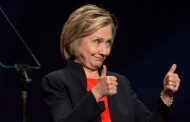
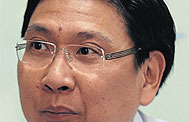
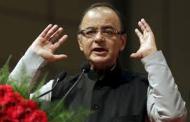
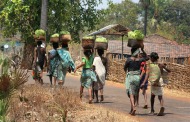
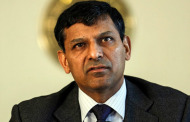
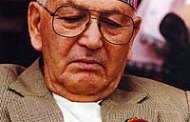



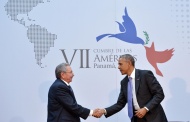





Recent Comments